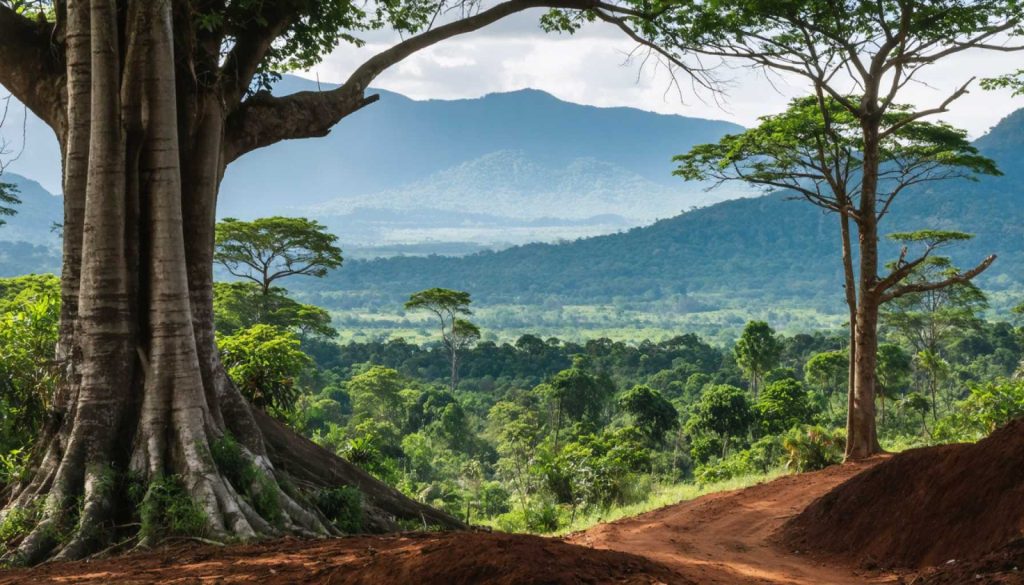
- Madagascar’s trademark law is a complex system that blends local traditions with international agreements, reflecting its rich cultural diversity.
- The Madagascar Industrial Property Office (OMAPI) plays a vital role in safeguarding trademarks, offering legal protection against imitation.
- Trademark protection is crucial for preserving Madagascar’s cultural heritage, ensuring authenticity in local crafts and designs.
- As part of the African Intellectual Property Organization (OAPI), Madagascar benefits from a broader regional network while maintaining unique national legal nuances.
- Trademark enforcement faces challenges due to resource limitations, but local entrepreneurs utilize informal networks to combat infringement.
- Registering trademarks in Madagascar is essential for both protecting business assets and preserving cultural identity.
- Understanding Madagascar’s trademark landscape is critical for businesses looking to succeed in this distinctive market.
Madagascar, an island nation renowned for its breathtaking biodiversity and rich cultural tapestry, harbors an intricate landscape of trademark law that mirrors its diversity. As businesses strive to thrive in this vibrant market, navigating the nuances of Madagascar’s trademark protections becomes vital.
The journey begins with the Madagascar Industrial Property Office (OMAPI), the guardian of trademarks. Here, entrepreneurs and innovators eagerly inscribe their marks, hoping to shield their creations from imitators. Unlike other jurisdictions, Madagascar’s trademark system integrates both local traditions and international agreements, reflecting a hybrid approach to intellectual property.
As the sun rises over Antananarivo, imagine an artisan from the heart of the island weaving brilliant patterns into exquisite textiles. This craft is more than an art form; it’s a cultural emblem. Protecting such cultural heritage from unauthorized exploitation becomes essential in preserving Madagascar’s identity. Trademark law steps in, offering this artisan a legal tool to safeguard their unique designs, ensuring that authenticity is maintained in a marketplace rife with imitation.
Madagascar is a member of the African Intellectual Property Organization (OAPI). By aligning with OAPI, Madagascar partakes in a broader network of intellectual property rights, thereby enhancing the protection afforded to its trademarks. Yet, Madagascar’s system remains distinct, blending these regional standards with national legislative nuances.
Vividly shaped trademarks, often incorporating elements of Madagascar’s wildlife and landscapes, stand proudly in commercial spaces as a testament to the ingenuity of their creators. These marks are not mere symbols; they are the commercial backbone enabling businesses to flourish and stand tall against global competition.
The enforcement of trademark rights in Madagascar, however, can prove challenging. The nation grapples with resource limitations that sometimes hinder swift legal recourse. Despite these obstacles, Malagasy entrepreneurs, armed with determination and wit, often leverage informal networks and community awareness campaigns to combat infringement.
In this undulating legal terrain, one takeaway stands firm: Registering and protecting trademarks in Madagascar is not just about fortifying business assets; it is about preserving the very essence of its vibrant culture and history. As the island nation continues to evolve, so too will its commitment to fostering innovation while honoring heritage.
For those craving to dip their toes into Madagascar’s commercial waters, understanding its trademark landscape is crucial. To embark on this journey without the knowledge of these protective measures is like traversing its dense forests without a guide. In a world increasingly dominated by global giants, Madagascar reminds us that embracing and protecting diversity is a strength, not a hindrance.
The Untapped Potential of Madagascar’s Trademark Landscape: What You Need to Know
Introduction
Madagascar, famed for its unparalleled biodiversity and cultural richness, offers a fascinating yet complex trademark landscape. As businesses aim to tap into this vibrant market, understanding the details of Madagascar’s trademark laws becomes crucial. The island nation’s approach to trademark protection uniquely fuses local customs with international agreements, establishing a framework that not only protects intellectual property but also preserves cultural heritage.
Key Facts and Insights
1. Role of OMAPI
The Madagascar Industrial Property Office (OMAPI) is the centerpiece of the nation’s trademark system. It administers trademark registrations and ensures the alignment of local laws with international standards, reinforcing the nation’s commitment to global intellectual property frameworks.
2. Hybrid Legal Framework
Madagascar’s trademark laws are a hybrid system, incorporating elements from both local customs and international treaties, particularly through its membership in the African Intellectual Property Organization (OAPI). These dual influences create a legal framework that is both robust and culturally resonant, offering an additional layer of protection by integrating indigenous artistry and heritage.
3. Traditional Cultural Expressions
Madagascar is rich in Traditional Cultural Expressions (TCEs), such as unique textile patterns and artisanal crafts. Protecting these through trademark registration is critical not only for commercial reasons but also to safeguard the nation’s cultural identity from unauthorized use.
4. Challenges in Enforcement
While legal protections exist, the enforcement of trademark laws in Madagascar is often hampered by limited resource availability. Entrepreneurs frequently resort to community awareness campaigns and informal networks to address infringement issues, underscoring a resilient entrepreneurial spirit.
Market Trends and Future Outlook
Intellectual Property Awareness
There is a growing awareness among Malagasy entrepreneurs about the importance of trademark protection, leading to an increase in trademark registrations. This trend reflects a deeper understanding of intellectual property rights as essential business assets.
Economic Implications
Intellectual property protection is integral to economic growth. By securing trademarks, businesses can compete more effectively on a global scale, fostering innovation and economic development in Madagascar.
Practical Tips for Businesses
1. Consult Local Experts:
Engaging local legal experts or consultancies familiar with Malagasy trademark laws can provide invaluable guidance, particularly given the system’s unique integration of local and international elements.
2. Leverage OAPI Membership:
Understanding the benefits of Madagascar’s OAPI membership can enhance trademark protection across multiple jurisdictions in Africa, offering strategic advantages for expansion.
3. Cultural Considerations:
Incorporating cultural elements into branding strategies can enhance market adaptability and resonate better with local and global audiences.
Conclusion
Navigating Madagascar’s trademark landscape requires a blend of strategic legal insight and cultural awareness. Businesses that leverage this knowledge can position themselves strongly in a competitive global market while contributing to the preservation of Madagascar’s cultural legacy.
Actionable Recommendations
– Register Early:
Start the trademark registration process early to avoid potential disputes and secure your market position.
– Educate Your Team:
Ensure your team understands the significance of trademark protection and how it relates to Madagascar’s cultural heritage.
– Community Engagement:
Participate in local community events and initiatives to build brand equity and foster goodwill.
For more insights, visit the World Intellectual Property Organization for global support and resources on intellectual property.



